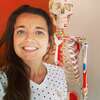What is Moersch-Woltman syndrome (or Stiff person syndrome)
Discovered by Moerch and Woltman, the stiff person syndrome is a type of A rare autoimmune neurological disease characterized by an inability to perform voluntary movements.
In the past, many people suffering from this syndrome have been wrongly diagnosed with "psychiatric disorders", which is why it is important that this syndrome be better known! As sad as it is for singer Celine Dion, who was recently diagnosed with Stiff Person Syndrome, she is going to help spread the word.
What are the symptoms of Stiff Person Syndrome?
The location and severity of the symptoms can vary greatly:
- Body stiffness with severe muscle rigidity and more particularly of the muscles of the trunk and proximal limbs
- Muscle spasms intermittent overlays
- increased sensitivity to external stimuli
- Lumbar hyperlordosis (very arched patient) found in the majority of patients.
- Difficulty moving around
- Alteration of walking
In this syndrome, there are two clinical subgroups:
The classic SPS (stiff person syndrome):
It affects the lumbar, trunk and proximal muscles of the limbs
SPS-plus syndrome
The stiff person syndrome - plus includes 3 subtypes:
- Stiff limbs subtype: symptoms are limited to the lower limbs
- Saccadic stiff man syndrome, which is characterized by chronic progressive stiffness and myoclonus (involuntary, brief muscle contractions)
- Acute and progressive encephalomyelitis with rigidity and myoclonus
What is the cause of the stiff person syndrome?
Stiff person syndrome or staff person syndrome is caused by an abnormal autoimmune response of the central nervous system, which causes inflammation of the nerves and muscles.
In a little more technical for those who want to go further:
It is an autoimmune, primarily encephalomyelopathic disorder that results from the clonal production of autoantibodies by B lymphocytes against presynaptic inhibitory epitopes on the enzyme glutamic decarboxylase (GAD) and the synaptic membrane protein amphiphysin.
Risk factors for Stiff Person Syndrome
Risk factors for Moersch-Woltman syndrome include:
- To be female
- Being of advanced age
- Have autoimmune disorders such as:
- multiple sclerosis
- Type 1 diabetes: in 30 to 40% of patients with SPS.
Diagnosis
This syndrome can be difficult to diagnose because its symptoms can resemble those of other neurological disorders.
The diagnosis is usually based on the physical examination of the patient, as well as on
- Blood tests: about 60% of patients have antibodies to glutamic acid decarboxylase in the blood and cerebrospinal fluid.
- Imaging tests to assess the condition of the nerves and muscles.
Treatment of Moersch-Woltman syndrome
There is no cure for Moersch-Woltman syndrome, only treatments to control the symptoms.
These treatments include:
- Medications: GABA-stimulating and antispasmogenic drugs and immunomodulatory therapies such as intravenous immunoglobulin (IVIG) administration. This is intended to reduce autoimmune reactions.
- Physiotherapy andosteopathy have their role to play in the management of this treatment because these two specialties participate in maintaining motor function.
Osteopathy : a tool to fight against stiffness

During an osteopathic consultation, the practitioner will test and mobilize all the joints of the body during 45 minutes. He will work on the different structures of the body with his hands in order to achieve the best possible mobility of the different structures.
To achieve this, your osteopath will use a set of articular, myotensive, visceral etc. techniques that he has acquired during his 5 years of study as well as all the additional training he has received. Rest assured, these techniques do not hurt and are not deleterious. Your osteopath will perform the techniques he deems necessary and appropriate to your problem after having explained his treatment plan to you.
This syndrome is certainly a disabling disease, but with proper treatment, many people with this condition can live a relatively normal life. Multidisciplinary care, including occasional osteopathic consultations, is the key to living well with this condition.
Marie Messager
Osteopath D.O
2 rue Alexis de Tocqueville
78000 Versailles

